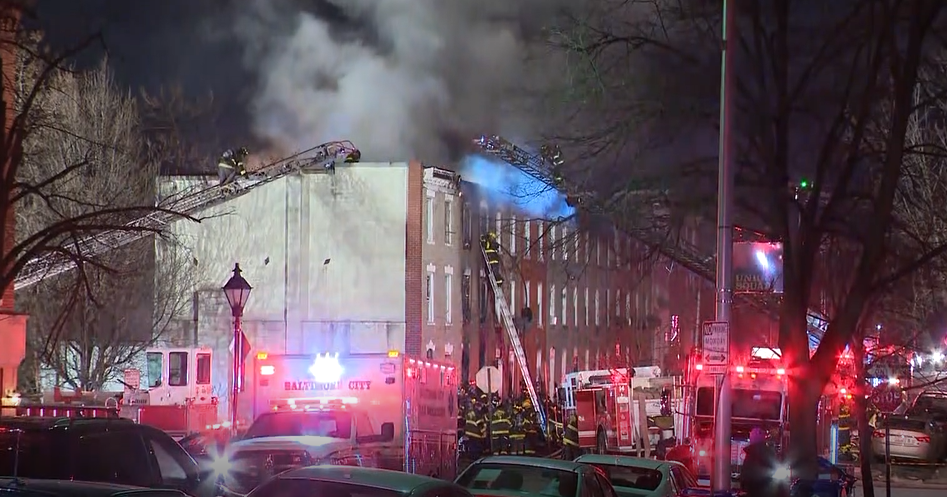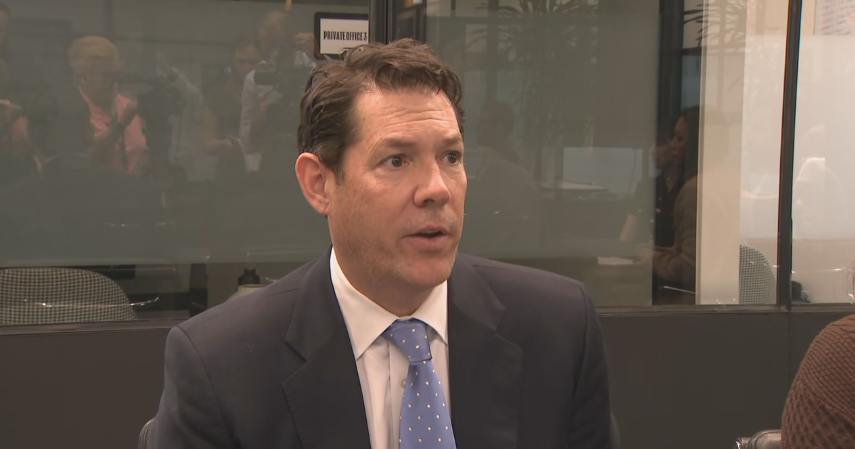Panhandlers Sue City For Being Kicked Off Magnificent Mile
CHICAGO (CBS) -- Nine Chicagoans have filed a class-action federal lawsuit, claiming the city has illegally forced them to move off of the Magnificent Mile, or face arrest.
Their lawsuit alleges Chicago police officers have lied to panhandlers on North Michigan Avenue, telling them it's illegal to ask for money there.
As CBS 2's Derrick Blakley reports, the plaintiffs claim they've got the photos to prove it.
Kim Pindak said he's out begging every day, and sometimes people give. But he says the Magnificent Mile is almost off-limits, by order of police.
LISTEN: WBBM Newsradio's John Cody reports
Podcast
Pindak said police have told him, "there's no panhandling on Michigan Avenue. If you don't leave, we're going to arrest you."
As WBBM Newsradio's John Cody reports, Pindak said it makes him nervous when police shag him off North Michigan Avenue, and tell him to panhandle south of the Chicago River.
Pindak said he gets $734 a month from the government and spends $704 of that on his nursing home. He says he needs to panhandle to supplement the remaining $30 per month he has to live on.
Pindak and eight other panhandlers are seeking an emergency injunction against three police officers and the City of Chicago, arguing that being shagged off North Michigan Avenue violates their right to free speech.
Pindak's attorney, Mark Weinberg, provided a video showing that's exactly what officers told Pindak as he was panhandling on the Magnificent Mile.
"So you're saying it's illegal to beg anywhere on Michigan Avenue?" Pindak asks a female officer in the video.
"On Michigan Avenue, it's illegal to panhandle, yes it is," the officer says.
The problem is, the law doesn't say it's illegal to panhandle anywhere in Chicago.
Weinberg said, "The city of Chicago is segmenting the streets of Chicago, saying that poor people can't be on certain parts of Michigan Avenue, where rich people can be."
That seems to be exactly what the officer in Pindak's video was telling him.
"Too much money here," she says.
Of course, that money is exactly why panhandlers want to be on the Magnificent Mile.
Quoting bank robber Willie Sutton, Muhammad el-Said said, "It's like they asked that bank robber why he robbed banks. He said, 'That's where the money's at.'"
On Wednesday, CBS 2 spotted an officer forcing a panhandler vacate his perch outside Water Tower Place.
Other panhandlers confirmed the unwritten policy.
"They tell me I got to get up and go. … Anywhere, just get off Michigan Avenue," el-Said said.
Weinberg said police should be embarrassed of the way they treat beggars on Michigan Avenue.
"Their desire to rid much of Michigan Avenue of panhandlers, by lying to them, is something police should be ashamed about."
Weinberg was also behind a 2001 class-action challenging the city's decade-old panhandling ordinance. The suit that resulted in a settlement of $500,000, and the city ended up lifting its ban on non-aggressive panhandling.
This lawsuit includes statements from nine panhandlers who claim they've been illegally harassed on the Magnificent Mile.
Weinberg said police usually don't arrest the beggars on North Michigan Avenue, they just force them to go elsewhere. He believes that's because any such arrests would be illegal, and could subject the city to liability.
Weinberg also plans to seek a temporary injunction to stop the practice of forcing panhandlers off the Magnificent Mile.
The Chicago Police Department had no comment on the lawsuit.
The city's Law Department said the city respects panhandlers' First Amendment rights, but city attorneys haven't seen the lawsuit yet, so the city can't comment further.







